Reducing delayed or denied care by streamlining the authorization process
AuthConnect
Role: Lead Designer, collaborating with a team of researchers, product, engineering and clinical informaticists. Built using athenahealth's Forge Design System.
Skills Used: UX Design, Blueprinting, Mixed Methods Research
Four in five doctors report patients giving up on treatment because of problems getting authorization.
Late-notice procedures done in Ascension hospitals are often not reimbursed because practice staff responsible for submitting prior authorizations are unaware or delayed. The primary challenge lies in the lack of effective communication between the hospital and surgeon’s offices.
These challenges result in incomplete authorizations and missed reimbursements. This is a challenge that is exacerbated at a massive system like Ascension — where different facilities use different EHRs, scheduling and billing systems — leading to communication gaps and fragmented operations.
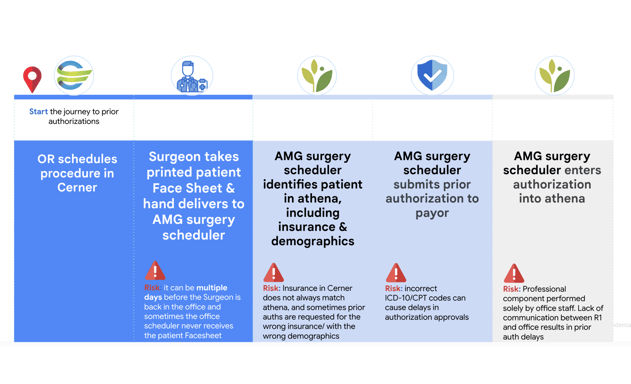

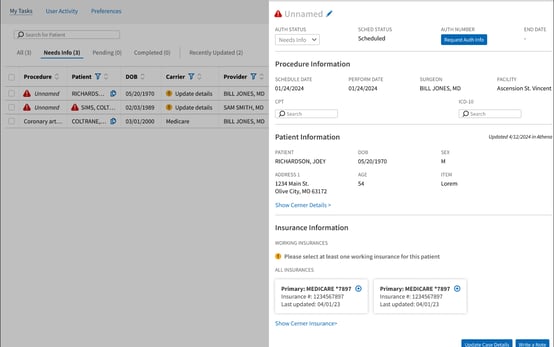

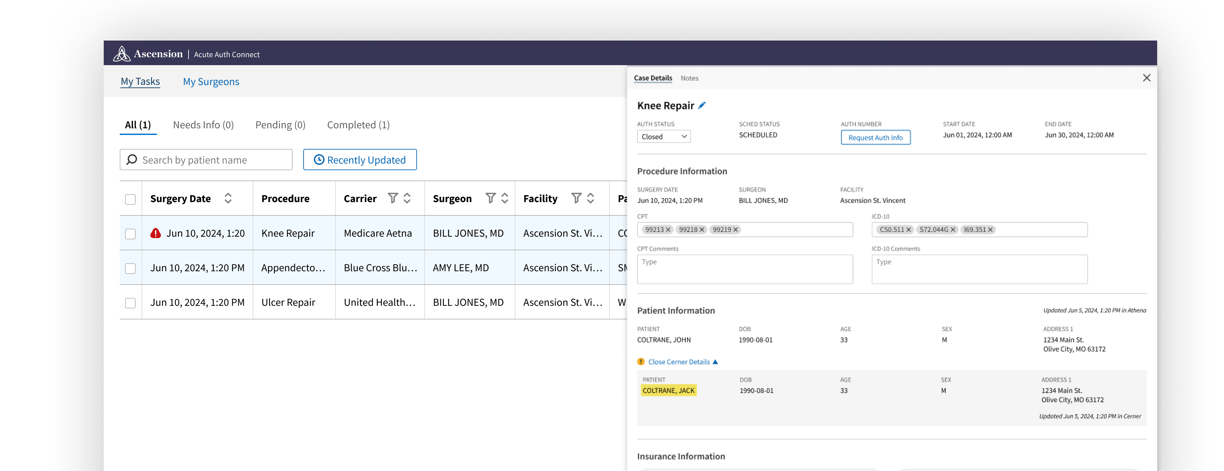

How might we centralize data to create a unified worklist for staff processing surgical authorizations?
By centralizing what used to live in separate systems in one place, we ensure that there is transparency when it comes to tracking authorizations. We also ensure that authorizations are completed in a timely manner with minimal errors. Incorrect or incomplete authorization requests are the most common cause for delayed or denied care. Optimizing prior-authorization process is both good for the patient, and an important revenue generator for the system.
We collaborated closely with experienced clinic staff, drawing on their deep expertise in surgical prior authorizations and the challenges they face.
Mapping user workflows
Users currently used a mix of paper documents, stickies and Excel to track different cases.
We heard that this often time leads to inconsistencies, missed requests and general work fatigue. Centralizing case management into one view helps maintain a single source of truth.
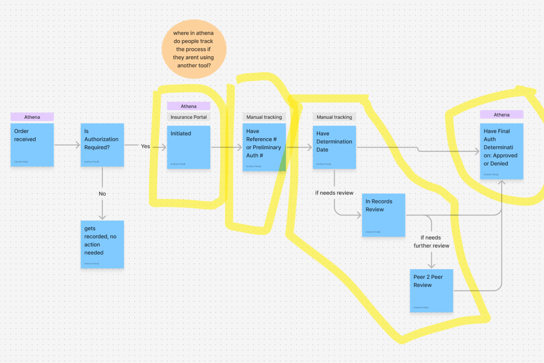

Discovering how our users best work with data and tables
Through card sorting we worked with our users to design their ideal work list concept. We found that data-dense data tables were preferred over a more simplified kanban approach. We identified critical data elements that need to be shown, to streamline the table design.
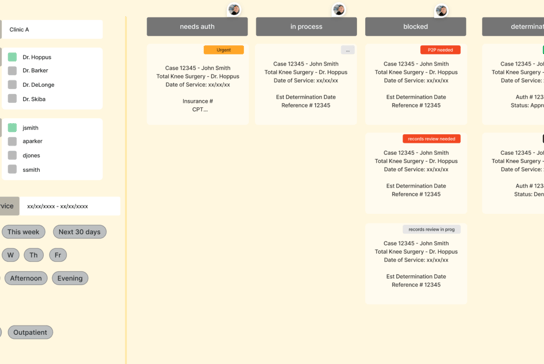

Centering on user stories
Based on our interviews, we discovered that users not only had to track and manage statuses, but they also had to reconcile data conflicts coming from different EHR systems. This is important, since incorrect or incomplete requests are the most common cause for an insurance company to delay or deny reimbursement.
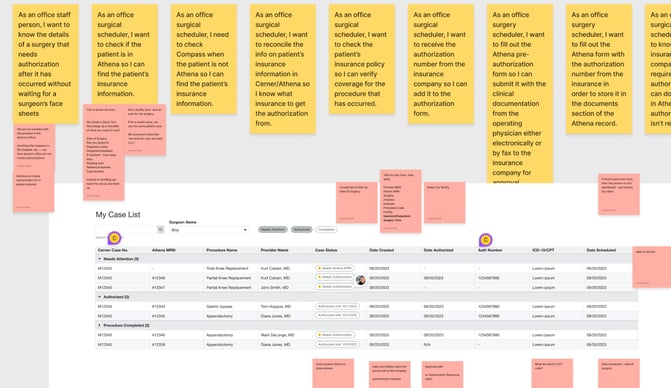

Empowering staff with these tools is good for the health system and for the patients we serve.
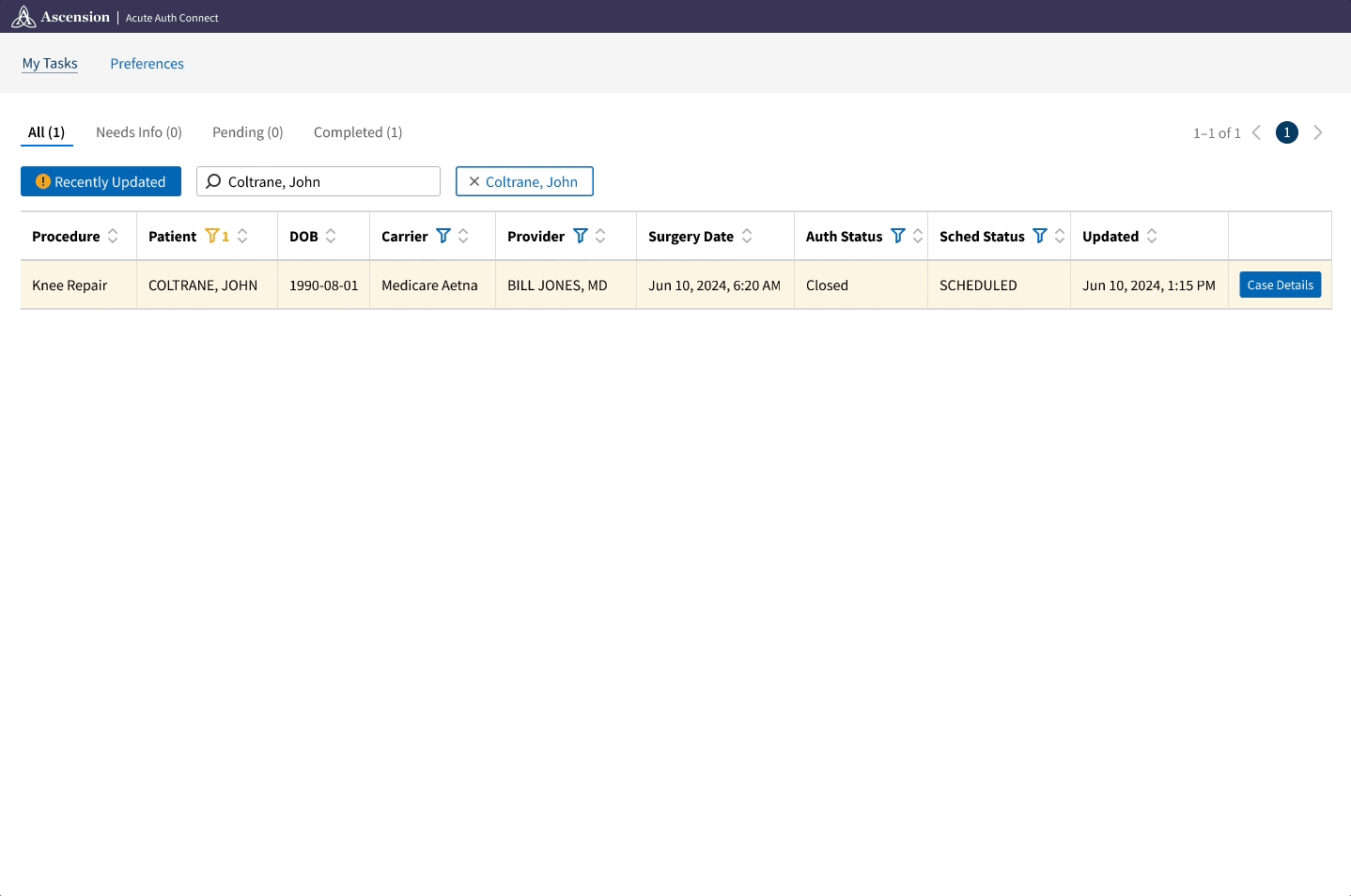

One place for all
surgical cases
Users launch AuthConnect directly from athenaOne. Any changes, wether by system or user is logged to ensure there is a paper trail for every case.
Accurate data reconciliation
Users have the most accurate data feeds needed to reconcile incomplete or incorrect information— a common reason for denial and delay of authorization and treatment.
Workflow management with auth status tracking
Users track the Auth Status of every case, which is logged in the AuthConnect app, as well as athenaOne and Cerner via bidirectional data flow.
AuthConnect streamlines authorization workflows and reduces delayed/denied care as a result of authorization issues
7
Markets where AuthConnect is deployed
$7.76M
reduction in write-offs due to prior authorizations represents significant financial gains
[Jan - Jun '24]
Crafted with ❤️ in St. Louis
© 2025 Andrew Pandji
All product names, trademarks and registered trademarks are the property of their respective owners. All company, product and service names used on this website are for identification purposes only. The use of these names, trademarks and brands does not imply endorsement.